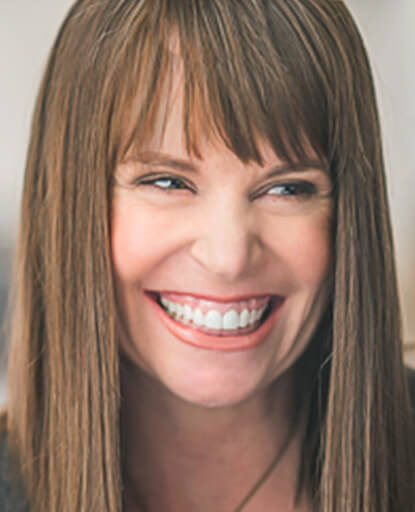
IQ is your intellect. IQ is your ability to learn. EQ is your emotional intelligence. Your IQ is static, and your personality is static — introvert or extrovert. The one thing that you can change is your emotional intelligence. It is learnable, and you can shift it.
There are four pieces to emotional intelligence. Two of them are based on yourself, and two of them are based on other people. The first one is self-awareness. What emotion am I feeling right now? And the second one is, How can I control how I’m feeling right now? And I would say, “How can I control my emotions and control my energy?” which we don’t talk about a lot.
The others are about your prospects and your clients and everybody else around you, about how they feel empathy and also your ability and social skills to recognize what is going on in other people and how they might be feeling.
So why is EQ so important? Well, EQ explains a significant amount of job success. It also explains a significant amount of financial success. People with higher EQs outperform people with lower EQs. People with higher EQs out-earn people with lower EQs. If you are thinking about, as an example, your team members or hiring, I suggest that you begin to consider hiring based upon EQ versus IQ. Grit, resilience, ability to get along with others, self-awareness, motivation, internal motivation — those are all EQs.
I’m going to dive into some ideas around amplifying your emotional intelligence. The first one is to cultivate curiosity. You’ve probably spent time with some marketing person talking about your client persona. And what I’d like you to do is begin to think more deeply about that particular client, not just their demographics, but really, truly their psychographics. What do they think, what do they feel, where do they get their information from and who are their friends? All of those things that you can begin to use to form stories and structures about the individuals you serve best. The closer you can get to what drives them, what makes them feel, how they are feeling now and what their desires and hopes and wishes are, the closer you can get to them. When you show up, you’ll be able to emotionally connect with them.
The energy you create determines the energy of the outcome. The idea of creating energy before you go to a really fancy sales call is probably nothing new to some of you. Does anybody crank music on their way to a really high-end opportunity? Yeah, I do. Absolutely. What are you doing right now to create the energy in your room in order to connect with somebody when they are on the other side of the camera? How do you create energy? I don’t think that we spend enough time thinking through this. What I did today to create energy was, up in my hotel room, I listened to Bill Withers’ “Lovely Day” cranked as loud as I possibly could.
The other one, as it relates to emotional intelligence, is how are you going to demonstrate authenticity? In the digital sphere, I see a lot of people giving up on the idea of how they show up virtually and having it really matter. Has anybody spent any time really working to craft your virtual appearance? Did you get a green screen? Do you have your own branded backgrounds? I would say that there is a huge opportunity still because when we think about that shopper and how she buys, she’s doing research before she talks to you. What are you going to do from the virtual perspective to amp up your presence and your presentation in an authentic manner? How are you going to show up differently? If you have not spent time practicing, staring at the camera — because you know that when you do, you make eye contact with your client — I suggest you do that. It’s really hard on your prefrontal cortex, by the way. But it really makes a connection with the individual on the other side of the camera.
The more different you are, the more you are going to stand out. The more you are humanly you, the more you are going to stand out from that sea of sameness that I see in financial services all the time. If you think about showing up human, another crucial trait is vulnerability. Offering up something about who you are and why you are here in a vulnerable fashion will create bonds of trust with those people around you. So, I have my LinkedIn; my LinkedIn is Sheri Fitts. You will see in my bio exactly why I am still here in financial services. It’s because I had an upbringing of financial lack. I had an upbringing of scarcity. I had an upbringing with three other brothers and sisters of not so much abundance. And I know that the stories that happen because of people’s work with advisors and individuals like you change their lives. So, I use that in my LinkedIn bio as a way of establishing some immediate trust instead of talking about lead generation and marketing and all of that kind of stuff. I’m talking about truly who I am and why I’ve decided to be in this industry.

Sheri Fitts is a financial services, marketing, sales and brand guru with nearly 30 years of experience helping organizations deepen client relationships and drive sales and revenue growth. From Utah to the UK, she has shared her expertise as an enterprise-level marketer and small-business owner with in-person and virtual audiences. She’s passionate about exploring new ways to help industry leaders broaden their sales reach and effectiveness through virtual and other digital media.